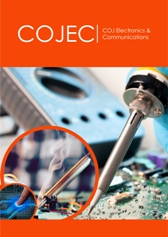- Submissions
Abstract
COJ Electronics & Communications
Toward Robust and Scalable Evaluation of AI Models: Past Practices, Current Tooling and Future Directions
-
Open or CloseMaikel Leon*
Department of Business Technology, Miami Herbert Business School, University of Miami, USA
*Corresponding author:Maikel Leon, Department of Business Technology, Miami Herbert Business School, University of Miami, Miami, Florida, USA
Submission: July 17, 2025;Published: August 05, 2025

ISSN: 2577-2007Volume3 Issue 3
Abstract
As Artificial Intelligence (AI) systems transition from research labs into safety-critical domains, such as healthcare, finance and autonomous vehicles, model evaluation has evolved from simple accuracy checks on static datasets to a multidimensional discipline that must address robustness, fairness, security, efficiency and real-world context. This paper traces the evolution through four overlapping eras-rulebased metrics, benchmark competitions, crowdsourcing and human-in-the-loop testing and continuousintegration workflows-showing how each phase expanded the definition of model success. It then outlines contemporary evaluation paradigms, including scaling-law analyses, task-specific versus taskagnostic testing, holistic ethical metrics, human-AI hybrid assessment and operational constraints. To illustrate how these principles are implemented, we survey ten representative frameworks (LlamaIndex, PyDantic Evals, EleutherAI LM Harness, Lighteval, OpenAI Evals, LangSmith, Phoenix, PromptFoo, custom in-house pipelines and Weights & Biases Weave), comparing them across modalities, metric breadth, automation, extensibility and licensing. A comparative analysis highlights trade-offs that of-ten necessitates combining multiple tools for comprehensive coverage. We discuss persistent challengesincluding shortcut learning, demographic bias and the need for continuous post-deployment monitoringand propose best practices for layered testing, falsifiable metrics and rigorous audit trails. Finally, we outline future directions, including risk-aware evaluation for “material” AI, federated privacy-preserving benchmarks, carbon-aware metrics and community-owned adaptive leaderboards. The paper argues that trustworthy AI depends as much on robust, context-sensitive evaluation pipelines as it does on model innovation itself.
Keywords:AI evaluation; Benchmarking; Metrics; Frameworks; Governance
 a Creative Commons Attribution 4.0 International License. Based on a work at www.crimsonpublishers.com.
Best viewed in
a Creative Commons Attribution 4.0 International License. Based on a work at www.crimsonpublishers.com.
Best viewed in 







.jpg)






























 Editorial Board Registrations
Editorial Board Registrations Submit your Article
Submit your Article Refer a Friend
Refer a Friend Advertise With Us
Advertise With Us
.jpg)






.jpg)














.bmp)
.jpg)
.png)
.jpg)










.jpg)






.png)

.png)



.png)






